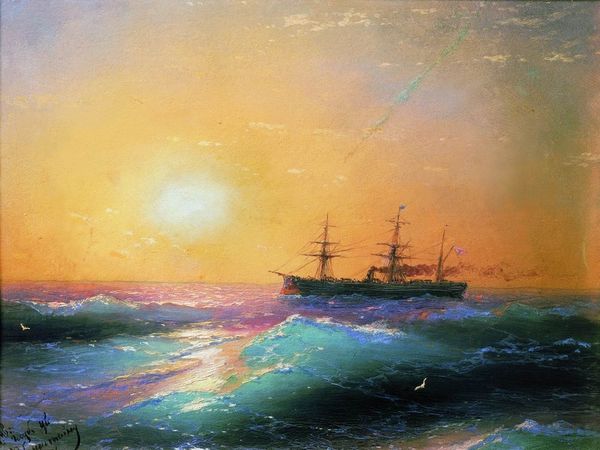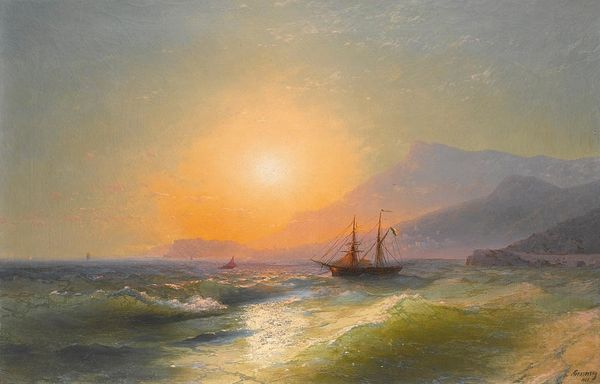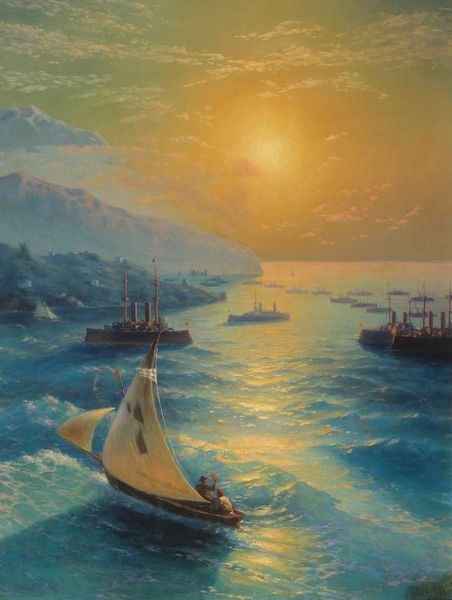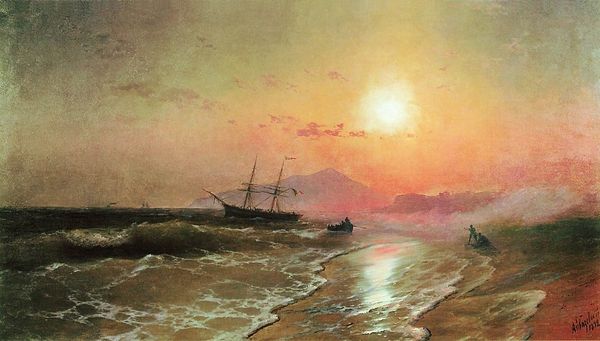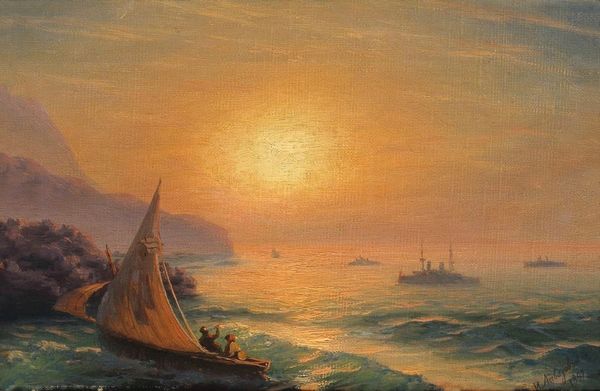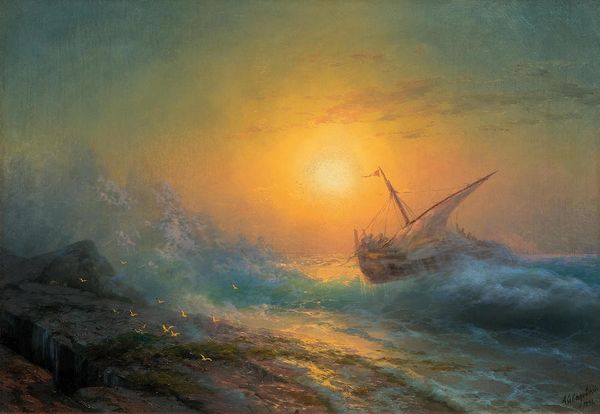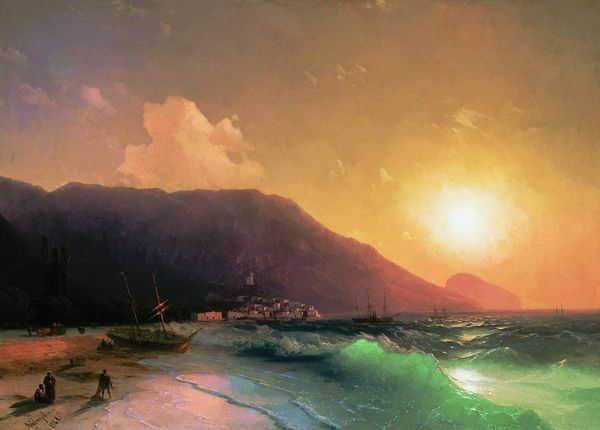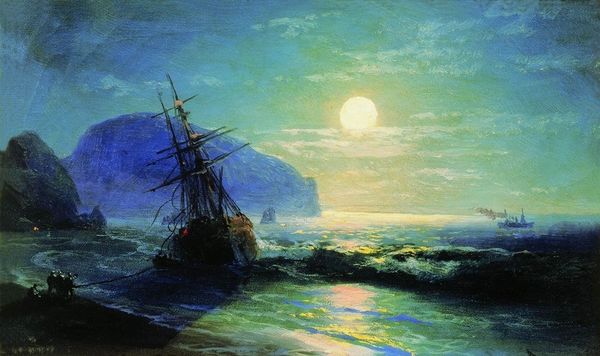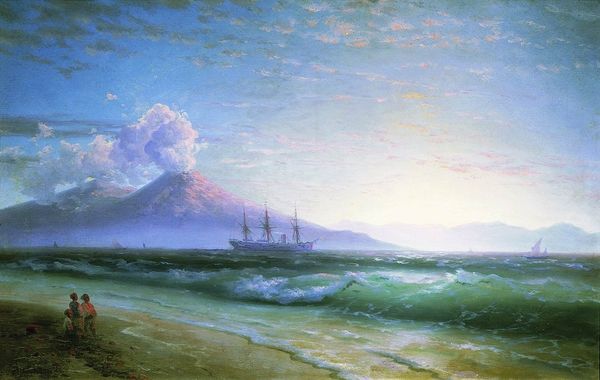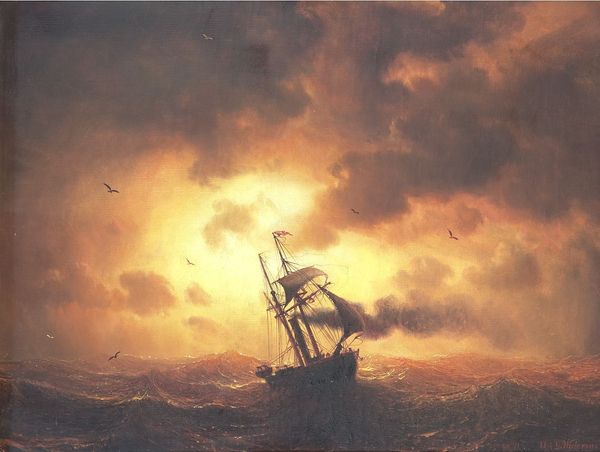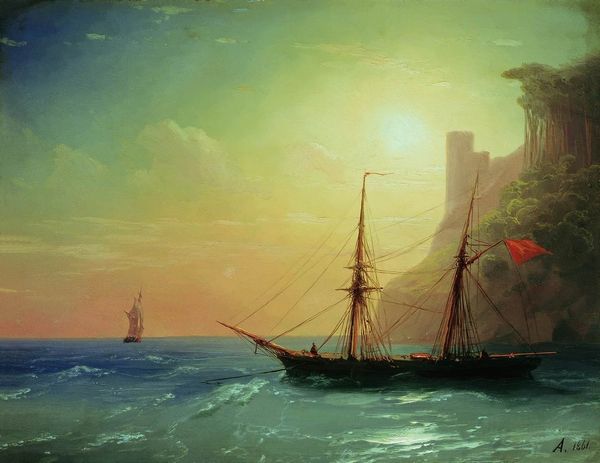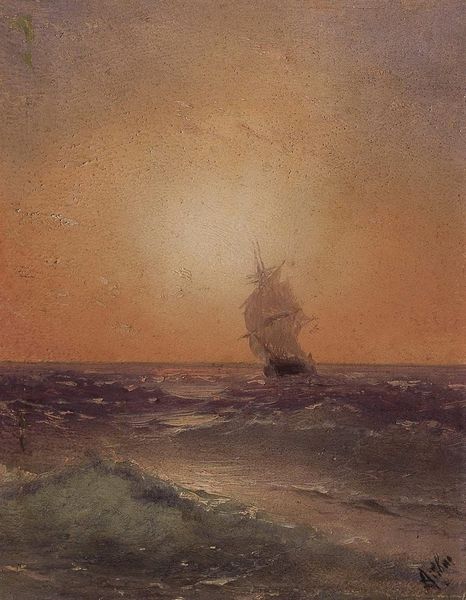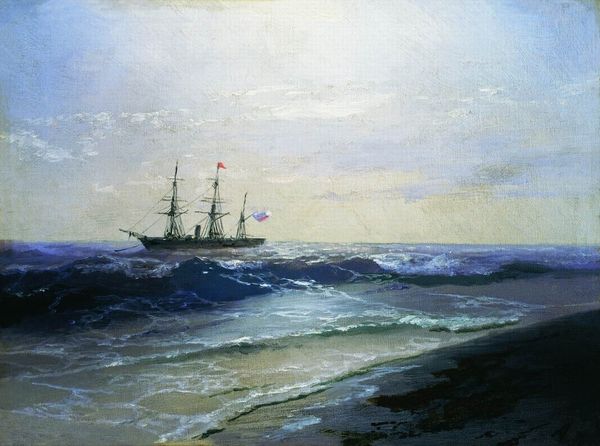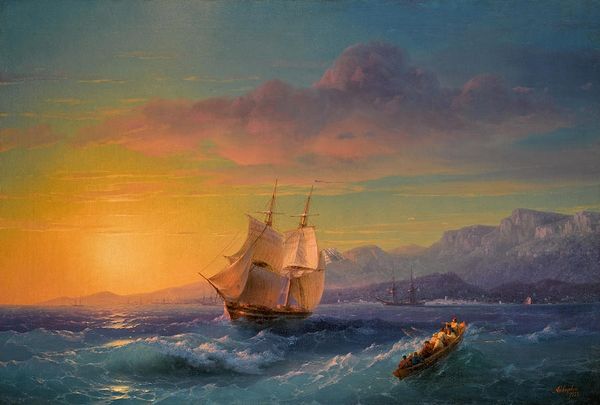
Copyright: Public domain
Ivan Konstantinovich Aivazovsky painted "Near Crimean Coast" sometime in the 19th century. This radiant seascape, typical of Aivazovsky, captures the sublime power and beauty of the sea, reflecting both the Romantic movement's fascination with nature and Russia's imperial ambitions. Aivazovsky, as court painter, glorified Russian naval power through his art, connecting it to the country's territorial expansion and trade interests in the Black Sea region. The Crimean coast held strategic importance, and paintings like this reinforced Russia's claim over the area by presenting it as a place of idyllic beauty and a source of national pride. The choice of a sublime sunset evokes a sense of awe and Russian dominance, in what the Russian state conceived of as ‘their’ sea. Understanding Aivazovsky’s work requires us to consider the socio-political context of 19th-century Russia and its expansionist policies. Art history provides the interpretive framework for understanding how art like this served those policies. By delving into historical archives, we gain deeper insights into the relationship between art, power, and national identity.
Comments
No comments
Be the first to comment and join the conversation on the ultimate creative platform.
